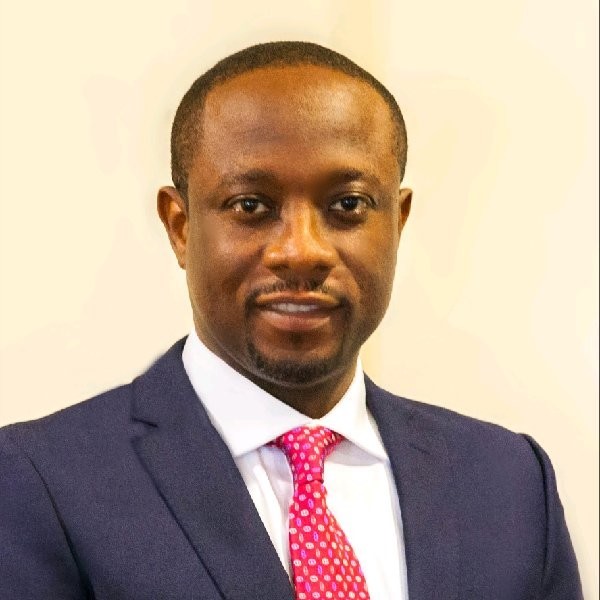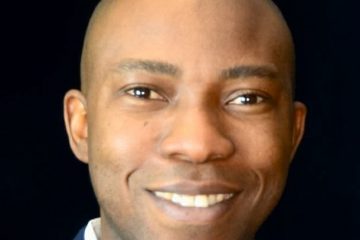
Dapo Olagunju was for many years one of the big shots in Access Bank where he held sway as a General Manager and Group Head of Treasury, and, later, as Head of Global Markets. He moved to American multinational investment banking and financial services giants, JP Morgan, as the Managing Director in charge of their West African business in January 2018.
In this interview with JarusHub, the highly respected banking guru shares his career journey and other lifehacks.
- Kindly tell us about your educational history
I have a first degree in Banking & Finance from Ogun State University in 1998; and qualified as a chartered accountant in 1999. I then proceeded to University of Oxford for my MBA in 2005 and the Harvard Business School’s General Management Program in 2014. I am also an Honorary Senior Member of the Chartered Institute of Bankers of Nigeria and a Fellow of the Institute of Chartered Accountants of Nigeria.
- You wrote ICAN exams in school, did you initially want to be an accountant? How did you become an investment banker?
I was in science class in senior secondary school and wanted to be an astronaut as I was fascinated with space travel. However, I quickly discovered this was a bit of a pipe dream when I looked through the JAMB brochure and did not see any course related to aeronautical engineering. My parents, like most Nigerian parents, were quite strict regarding academics and I sat for JAMB in my penultimate year of high school. I got rather high scores and was accepted to a university before I even took the WAEC exams; as I had already sat and passed the private SSCE exams.
My first introduction to accounting was in the university. In the 1990s, higher education in Nigeria was characterised by a lot of student demonstrations and strikes by university lecturers. During one of those long breaks, I started taking ICAN exams and qualified just after I left university. I was recruited by IBTC, which then was (and arguably still is) the foremost investment banking institution in Nigeria.
- You were at the old Investment Banking & Trust Company (IBTC), now part of StanbicIBTC, at the early stage of your career. We noticed that a good number of home-grown investment bankers of your generation started in that company. Is there anything special about the training you received there?
At the time, ICAN was perhaps the most prestigious professional exam in the country. The management of IBTC preferred that new recruits were ICAN certified, had a 2.1 university degree and, typically, were in their early twenties. Also, Nigeria had just transitioned to civilian rule so a lot of privatisation programmes were happening. This meant that most of us happened to be in the right place at the right time and got to work on very complex transactions that were of strategic national importance, very early on in our careers. We also had the opportunity to work alongside and be mentored by the best brains in the business.
- You had your MBA from Oxford. Can someone really have a great career in investment banking or get to the top without MBA in top foreign schools? We also noticed that many investment bankers of your generation and the generation before yours, did MBA, rather than CFA, as a route to investment banking career. These days, many young aspiring investment bankers prefer to go the CFA route. What is your view on this?
I think they offer different routes to probably the same destination. I don’t think they are mutually exclusive and a lot depend on personal circumstances, but I typically advise prospective bankers to pursue an MBA from a school with a strong global brand and alumni network. Most bulge bracket investment banking firms have targeted MBA hiring programs including campus recruitments. However, it is important to point out that getting an MBA from an elite institution can be quite expensive, and not just the cost of tuition but also because of the unpaid time away from work.
- What is the difference between Private Equity and Investment Banking? Do both require same set of skills and training?
Investment bankers are majorly involved in capital-raising services, including advisory and restructuring work for companies while PE firms typically are investment managers that raise capital from different sources, including their own equity and then invest these funds in businesses that they think will generate returns. While IBs get a fee that is a fraction of the value of capital raised or advisory work done, PEs typically expect to make multiples of the amount invested. Generally speaking, the two careers require a strong finance background but there are significant differences in the activities of these two segments.
- Investment Bankers are said to work long hours, jet around the world for meetings with clients and, ermmnn, have highly financially rewarding career with out-of-this-world perks, how have you found the career so far? How do you strike work-life balance? How do you unwind?
I think times are changing. There are now deliberate efforts to ensure that there is a work-life balance for all employees. One may even argue that global investment banking firms are less stressful than local commercial banks.
In my downtime I love to travel, I enjoy adventure and water sports. I also read widely – nothing is out of bounds.
- You are involved in a number of social projects, like the Dapo Olagunju MBA Scholarship, Said Business School, Oxford, for African students (with a preference for Nigeria); Education As a Vaccine; and 234give.com, to mention but a few, what advice do you have for other privileged executives on social causes and giving back to the society?
We have to find a way to give back to the society. It doesn’t necessarily have to be in a financial way, it could also be in the form of mentoring and actively participating in national discourse.
- As a senior executive, you must have interviewed probably hundreds of Nigerian graduates and experienced job seekers in your career, what are the key skills you look for when hiring people? Is it true that Nigerian schools do not adequately prepare students for the outside world?
Most people that I interview would have been pre-screened for their academic achievements so I don’t typically have issues around the quality per se. However, it is clear that most people have not been tutored in interviewing skills and often times under-sell themselves in the process. Schools should seek to offer career guidance for students covering “soft” issues such as job applications, CV surgeries, interviewing and networking skills.
- Finally, kindly advise young Nigerians aspiring to have great career like you, in Finance or elsewhere.
Academic excellence is a prerequisite. Also, the value of networking cannot be understated. One must always be willing to go over and beyond the call of duty – not much can be achieved if you are not passionate about what you do.
Thank you for taking time out of your busy schedule to talk to JarusHub, Nigeria’s most resourceful career and mentoring platform.
Other executive interviews:
Abubakar Suleiman, CEO Sterling Bank
Niyi Yusuf, CEO Accenture Nigeria
Femi Awoyemi, CEO Proshare Nigeria
Lloyd Onaghinon, GM StanbicIBTC
Taiwo Oyedele, Partner PwC Nigeria
Nimi Akinkugbe, Non-Executive Director, Standard Chartered Bank
Established in March 2013, JarusHub is a Nigerian information hub with focus on career and management. It is rated Nigeria's most authoritative destination for online career resources. It parades an array of Nigerian professionals who share their career experiences with a view to bridging career information gap and mentoring a generation to success. Whether you're a student, a recent graduate or an established professional, or even an executive, you will always find something to learn on JarusHub. All enquiries to jarushub@gmail.com or 0808 540 4500. Facebook: www.facebook.com/jarushub; Twitter: @jarushub or @mcjarus.
Making the most of your 9-5: An Interview with Jarus
June 27, 2021






